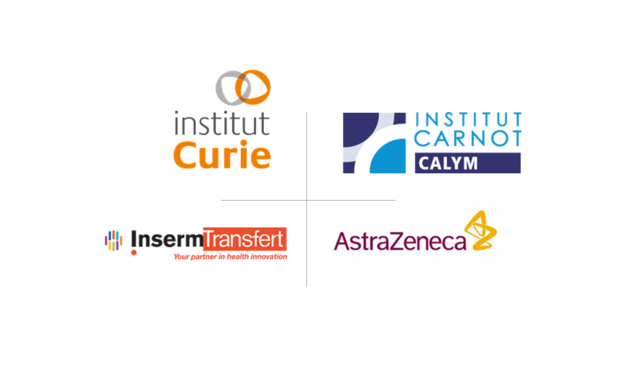Institut Curie, AstraZeneca, Carnot CALYM & Inserm Transfert partner for the treatment of lymphomas

AstraZeneca, Institut Carnot CALYM and Inserm Transfert, on behalf of Inserm and its academic partners, just signed a framework agreement for collaboration in lymphoma. This partnership sets up the conditions for collaboration between AstraZeneca R&D and Carnot CALYM Institut network’s researchers on preclinical and translational projects. The objective is to join their expertise and accelerate research in order to provide lymphoma patients with innovative therapeutic solutions. AstraZeneca's R&D will bring new drug candidates from their technological platforms and the CALYM network, its expertise in physiopathology of lymphomas. Up to two projects may be initiated annually upon proposal by CALYM teams.
In this context, two projects will be funded and launched in the next 3 months: the INOVO project, in collaboration with CNRS spin-off, Oncofactory, and the INTREPIDS project, developed in collaboration with Institut Curie and led by Dr. Carole Soussain, hematologist at Institut Curie.
In collaboration with Institut Curie: the INTREPIDS project
The INTREPIDS project aims to evaluate the potential of immunotherapy in lymphomas of the central nervous system. Based on patient samples, a screening of molecules modulating the immune response will be carried out on different models in an attempt to identify the most promising strategies for the future treatment of patients suffering from this rare pathology.
Cerebral lymphomas have the particularity of developing in the central nervous system, which provides the lymphoma with a microenvironment conducive to tumor proliferation, in part due to the immunocompromised nature of this environment, which could limit the effectiveness of immunotherapies. The aim of this work is to evaluate different immunomodulation strategies of this environment,
comment Dr. Carole Soussain and Pr Loïc Ysebaert, hematologist at the Toulouse Cancer Research Centre.


